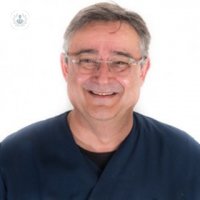Bruxism and headache, a functional problem of the mouth
Written by:Do you suffer from headaches? You may suffer a functional problem in the mouth. Bruxism is to squeeze and rub the teeth during the day or evening.
 Among the functions of the mouth are chewing, drinking, talking, laughing, tasting, kissing, sucking. In all muscle, bone, joint, vascular and nervous system involved. But, can you relate your dentist functional mouth problems with headaches?
Among the functions of the mouth are chewing, drinking, talking, laughing, tasting, kissing, sucking. In all muscle, bone, joint, vascular and nervous system involved. But, can you relate your dentist functional mouth problems with headaches?
The only function where tooth contact occurs is in chewing, not exceeding 40 minutes a day. The chewing force is programmed by our central nervous system depending on the consistency of the food we chew first. Both the bite force, as the movement are learned and are recorded for the future.
Unfortunately there are movements that are not made for chewing function, the call parafunctional movements whose main exponent is called bruxism is to squeeze and rub the teeth during the day or evening.
What are the causes of bruxism?
Bruxism occurs due to high masticatory muscle activity that produces a maximum bite force for hours, without food.
Today we know that the cause of bruxism is not only involved tooth but the (sympathetic) autonomic nervous system that causes the increase in both oral and cervical mastication.
It can cause muscle problems (craniomandibular and skull-cervical) joint (craniomandibular and craniocervical) and tooth wear (loss of height of the lower third of the face, loss of tooth anatomy, loss of mandibular position centered) .
Bruxism symptoms
This excess muscle activity can cause neurological symptoms such as headaches, dizziness, tinnitus. Last reviewed articles show that bruxism teeth clench or rubs 365 days a year for several hours (day and night).
The international classification of headaches (headaches) stated in its point 11 no pain secondary to face problems head, neck, eye, sinus, ear, temporomandibular joint. Therefore, before a chronic headache, exclude, by scanning, if the dental function is physiological or pathological.
How do I know if I have bruxism?
If you have chronic headaches and do not improve with medication you should ask yourself some questions:
- Would you have made a study of masticatory function?
- Do you have tooth wear?
- Is mouth breather?
- Do you have sleep apnea?
- Do you sleep badly?
- Is she tired?
- Have you had vertigo?
If you answered yes to three or more questions, you may find that your headache is related to a malfunction of the mouth.
In the functional treatment of the mouth, the team involved neurologists, ENT doctors, physiotherapists, dentists and dentists. It studies are conducted by 3D scanner, postural, occlusal record Computer force, as evidence of high level that complement diagnoses with great accuracy.



